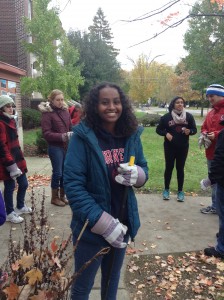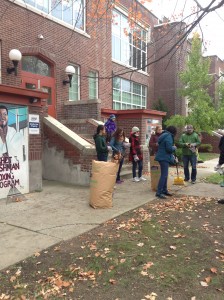I remember last semester we had 7 or 8 therapy dogs come in at Appel after dinner, and when I got there I had an old fluffy one to myself. Its trainer told me that dogs need to take breaks after these kind of “events”, that they get overwhelmed by our energy, the way we smell- he explained some science behind it but I just remember feeling extremely guilty. I don’t know how rational ‘dogs can take our sadness from us and need to rest’ sounds but that’s what it feels like. As someone that’s been dealing with mental health issues for a few years and who has her own kind of therapy dog at home, it’s overwhelming, but overwhelming in a great way, when doing these kind of self-care events because finally, as students we can admit that we’re not OK.
I’d love more events like this, not just before finals or once or twice a semester. And I think these events can have more impact than they currently do. Now they stand as just a small break, not a solution but a band-aid to the stressful environment of Cornell, and to the larger campus-wide mental health issue we keep ignoring.


